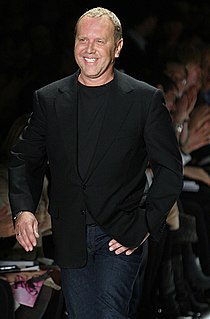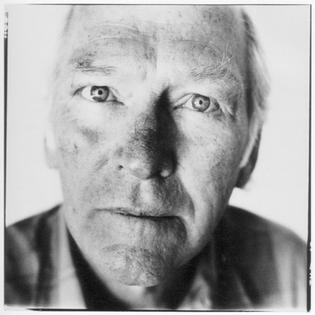A Quote by Steven Johnson
How could so many intelligent people be so grievously wrong for such an extended period of time? How could they ignore so much overwhelming evidence that contradicted their most basic theories? These questions, too, deserve their own discipline: the sociology of error.
Related Quotes
In my experience, writing a novel tends to create its own structure, its own demands, its own language, its own ending. So for much of the period in which I'm writing, I'm waiting to understand what's going to happen next, and how and where it's going to happen. In some cases, fairly early in the process, I do know how a book will end. But most of the time, not at all, and in this particular case, many questions are still unanswered, even though I've been working for months.
In college, in the early 1950s, I began to learn a little about how science works, the secrets of its great success, how rigorous the standards of evidence must be if we are really to know something is true, how many false starts and dead ends have plagued human thinking, how our biases can colour our interpretation of evidence, and how often belief systems widely held and supported by the political, religious and academic hierarchies turn out to be not just slightly in error, but grotesquely wrong.
I think often people fall into the breadth trap of wanting to do too long a period of time, and obviously there's this sort of algorithm of how much depth you can put into something times how much of their life you're trying to show. My attitude has always been, I'd rather show a briefer period of time in more detail than a longer period of time in less detail.
Most people believe they have a clear idea of what's right and wrong. Many say they know how they'll act, or how they'll handle an extreme situation. But to be honest, no one knows. Not reallyBecause none of us truly knows what we'll do when the circumstances become so overwhelming and complex that we can't even tell right from wrong.
You know, we're the most undisciplined generation the world has ever knownhow many of you are disciplined? How many go to bed at the same time every night, get up every morning at the same time? How do you discipline your appetites, how do you discipline your tongue? We're the most weak, effeminate Christianity the world has ever had-no wonder nobody wants it. It has no strength, it has no character
I'm friends with a lot of writers and so many of them say how much they hate signings and how they leave after a certain period of time. But what is so hard about sitting there while people tell you how much they love you? And if you don't like it, well, learn to like it. I try to take one person at a time. I never look down the line to see how many more people are left. And I always try to make people talk about something besides whatever they planned to say.
Being a resident of the city and spending most of my time in the city, I've always been perplexed with how people could say there's nothing to do and nothing going on in Detroit, and how could you raise your family in Detroit. My reality is that I hang around with some of the most interesting creative people in the world, people doing things that could only be done in Detroit.
There are three basic problems: how a mind can know the world of nature, how it is possible for one mind to know another, and how it is possible to know the contents of our own minds without resort to observation or evidence. It is a mistake, I shall urge, to suppose that these questions can be collapsed into two, or taken into isolation.
Many people say, "Well, I'd love to make a decision like that, but I'm not sure how I could change my life." They're paralyzed by the fear that they don't know exactly how to turn their dreams into reality. And as a result, they never make the decisions that could make their lives into the masterpieces they deserve to be. I'm here to tell you that it's not important initially to know how you're going to create a result. What's important is to decide you will find a way, no matter what.



































